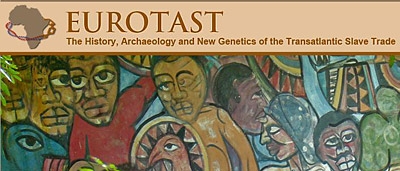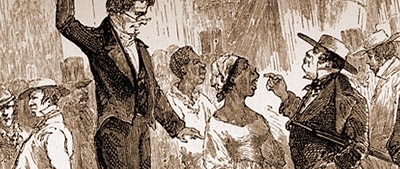EUROTAST Press Release
The transatlantic slave trade between the 15th and 19th centuries represents one of the most traumatic chapters in history and is now widely recognised as a crime against humanity. EUROTAST is a new European-funded research network that will bring together an unprecedented range of researchers to examine the history of the transatlantic slave trade and to explore its long-term effects.

“One of the really exciting things about the project is the level of collaboration between academics in Europe and other parts of the Atlantic world” says Professor Gilbert, the Scientist leading the project from the Centre for GeoGenetics in Copenhagen . “We are thrilled to have the participation of specialists from West Africa and the Caribbean, as the main aim of the network is to explore our common history and to investigate the persisting legacies of slavery on the lives of millions of people in the African-descendent communities in the USA, the Caribbean and across Europe.”
Funded through the Marie Curie Actions, the €4.3 million project will support 15 young researchers who will be based at 10 partner institutions across 7 European countries. The researchers will be recruited from a wide range of disciplines, including history, archaeology, genetics and social anthropology. “By bringing in experts from these various fields, including those that are not usually associated with researching the history of the slave trade, we will generate new data that will significantly add to our knowledge of how the slave trade operated, such as using new genome techniques to analyze where the enslaved captives originated from in Africa, and bio archaeological experiments to investigate the lives of the enslaved to understand their diet and the diseases that inflicted them once they were transported from Africa” says Dr Schroeder, Researcher at the Centre for GeoGenetics in Copenhagen and Co-Coordinator of the project.

A unique feature of Eurotast is that the research will be disseminated in school curricula projects, museum exhibitions and media products. All the researchers will make podcasts and contribute to documentary films throughout their research guided by Professor Helen Weinstein, Director of IPUP (The Institute for the Public Understanding of the Past) who said: “The scale of this research project is ambitious and it is essential that the findings reach a wide audience. Using the media is going to be ground-breaking for sharing the research process with a wide audience beyond the walls of academia. Documenting the journey of the research findings from beginning to end of their discoveries will allow for an understanding of the research process itself. Not only will the media products help engage a wide audience with this research, but learning materials will be designed for museums and schools in Europe and Africa and the Caribbean which will have a significant impact on the way that this traumatic history is taught and understood across the world.”
The project is funded for four years and will run until 2015.
For further details, please visit the project webpage at www.eurotast.eu
